Teenagers in the Patriotic War of the Abkhazian People, by Indira Bartsits
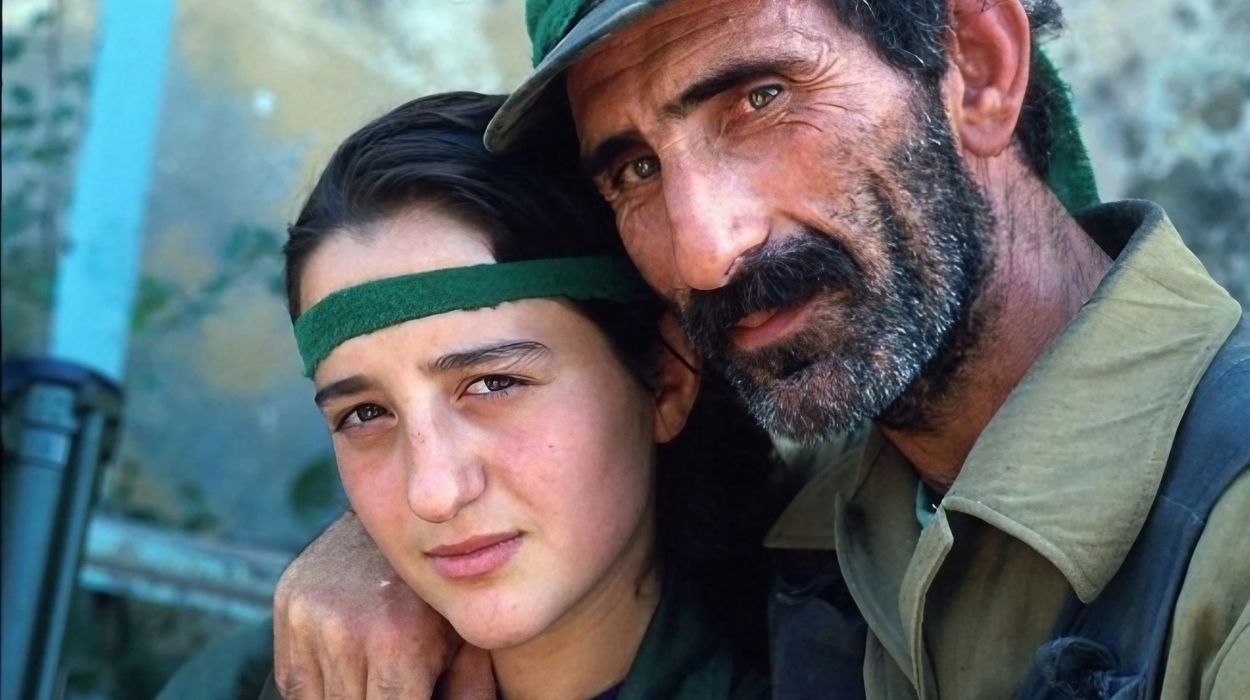
Abkhazian fighter and his daughter. Sukhum, September 29, 1993
The war indelibly marked the memory of every citizen in our republic. No house or family remained untouched or uninvolved in the Victory, and every year, we express our gratitude to those who fought for our Homeland.
War is a terrible force that makes no distinctions— not by age, gender, or nationality. Each of us harbours distinct memories from those tragic days, but the children of that era have their unique tales to tell.
These days, one can't help but recall the Gudauta military hospital, where medics tirelessly tended to the wounded day and night. Every life was precious. The influx of wounded would especially spike during times of active combat. The Gudauta hospital served as a gathering point where, every morning, the mothers, sisters, and fathers of the soldiers on the frontlines would assemble. Lists of the deceased were displayed here, and everyone, with a mix of fear and hope, awaited news from the front following the latest offensive by the Abkhazian armed forces.
Following the March offensive, the number of wounded surged. They were brought in by private cars, ambulances, trucks, and helicopters.
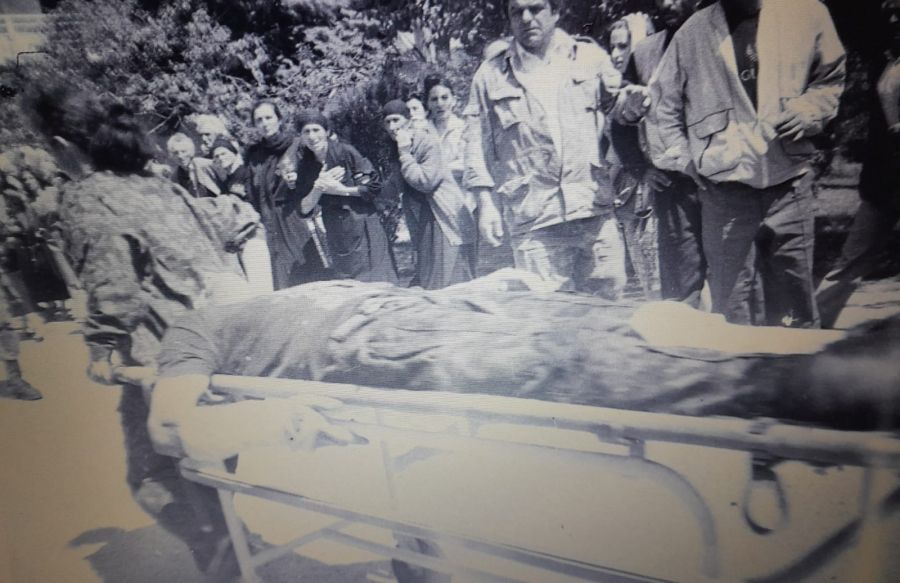
Photo by Maya Amichba.
The hospital soon faced a shortage of hands to help unload the wounded from the vehicles and carry them into the medical facility. There were instances when there was no one available to lift the stretchers. The nurses were physically overwhelmed, unable to assist every admitted patient, and the hospital lacked orderlies. The sight of blood, wounds, the distinct odour, and the bodies of the deceased led to burnout among some medical staff – not everyone could endure such scenes. Consequently, there was a pressing need for additional people who could at least carry stretchers bearing severely wounded soldiers.
Someone from the hospital reached out to the Gudauta school, explained the situation to the senior classes, and requested help. At that time, children from Sukhum were also attending schools in Gudauta. Naturally, the plea for assistance at the "medical front" did not go unanswered. Numerous boys and girls eagerly responded to the request and made their way to the hospital.
Initially, the volunteer group consisted of up to 20 people. However, over time, the number of child volunteers started to dwindle. Not everyone of such a tender age could withstand the tense atmosphere of a hospital from morning till evening, amidst ongoing war, where daily arrivals from the battlefield were a common sight. The influx of the wounded was overwhelming, but the number of deceased was equally substantial…The deceased were brought to the hospital and subsequently moved to the morgue, carried on stretchers or gurneys. Once there, the medical staff prepared the bodies, dressed them, and handed them over to relatives. All of this unfolded before the very eyes of the boys and girls who selflessly endeavoured to alleviate the suffering of the wounded and assist the medical staff in any way possible. It is no simple task; not everyone can endure witnessing the pain and suffering of wounded individuals day after day.
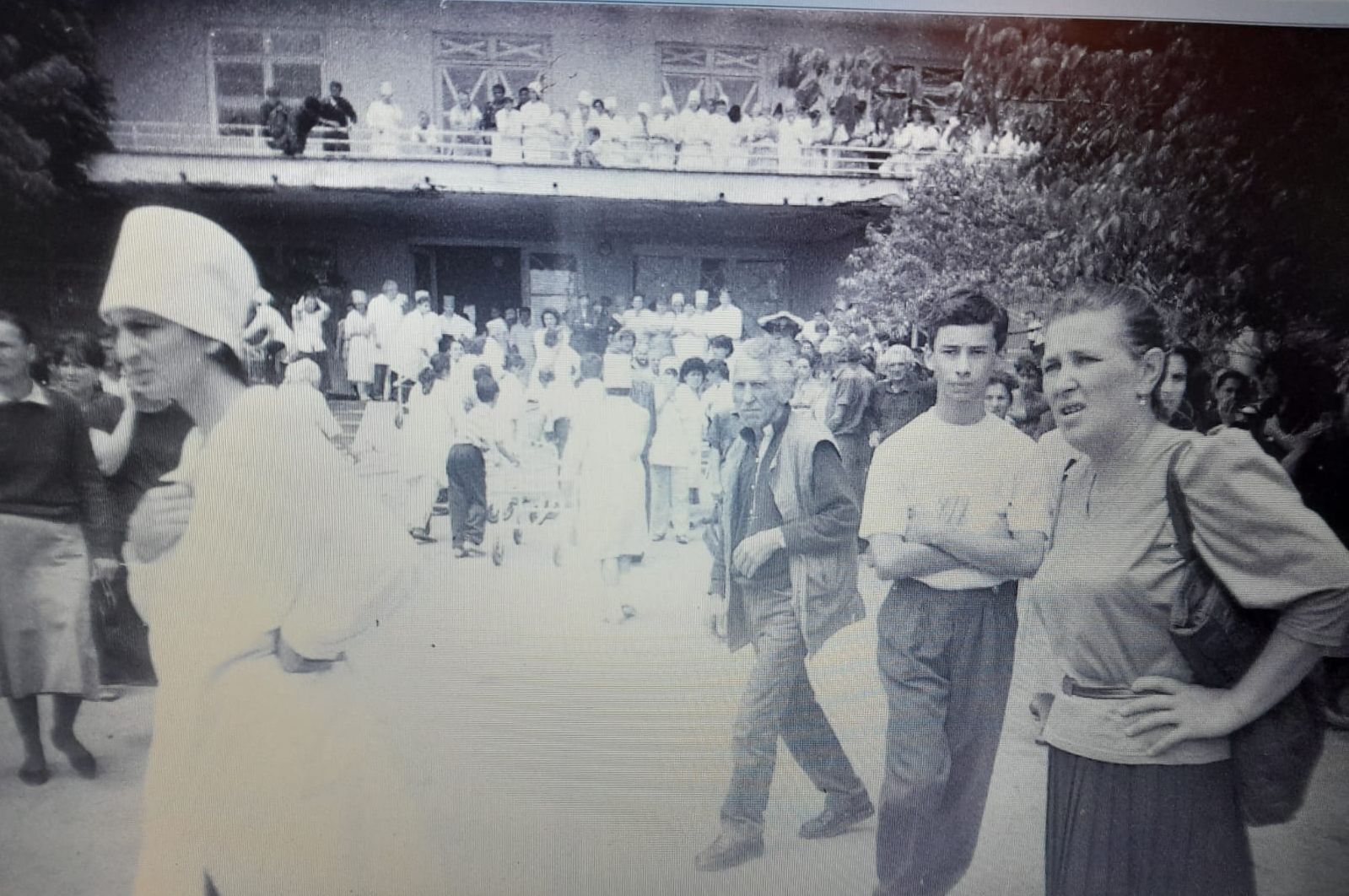
Photo by Maya Amichba.
Answering the hospital’s call for help, students from Sukhum Middle School №10 were primarily the ones to step forward. Among them were 14-year-olds Daur Kove, Lasha Lakrba, Illarion Gartskiya, Aslan Kvernadze, Ruslan Shakaya, Inal Kvarchia, Nika Dzhopua, and others.
Three decades have elapsed, but these once children, now adults, are reticent to speak of those days, of what they witnessed and learned. But they remember. And it is imperative for us, too, to remember that outpouring of love for the Homeland demonstrated by these young souls. A broadcast about them aired on Abkhazian radio, but, regrettably, it hasn't been preserved in the archives.
"I recall how representatives from the hospital visited our school and explained how we could assist in transporting wounded patients to the X-ray room, from the ward to the operating room, and back, among other tasks. Yes, we attended to the severely wounded, even handling bedpans. We helped feed them, read books, and provided entertainment... It was especially challenging during battles. Wounded and deceased were admitted on other days as well, particularly following positional artillery shelling. The wounded were brought into the hospital, while the deceased were transported to the morgue," shared Ruslan Shakaya, a renowned artist, scriptwriter, and showman in Abkhazia, with the "Abkhazia-Inform" agency.
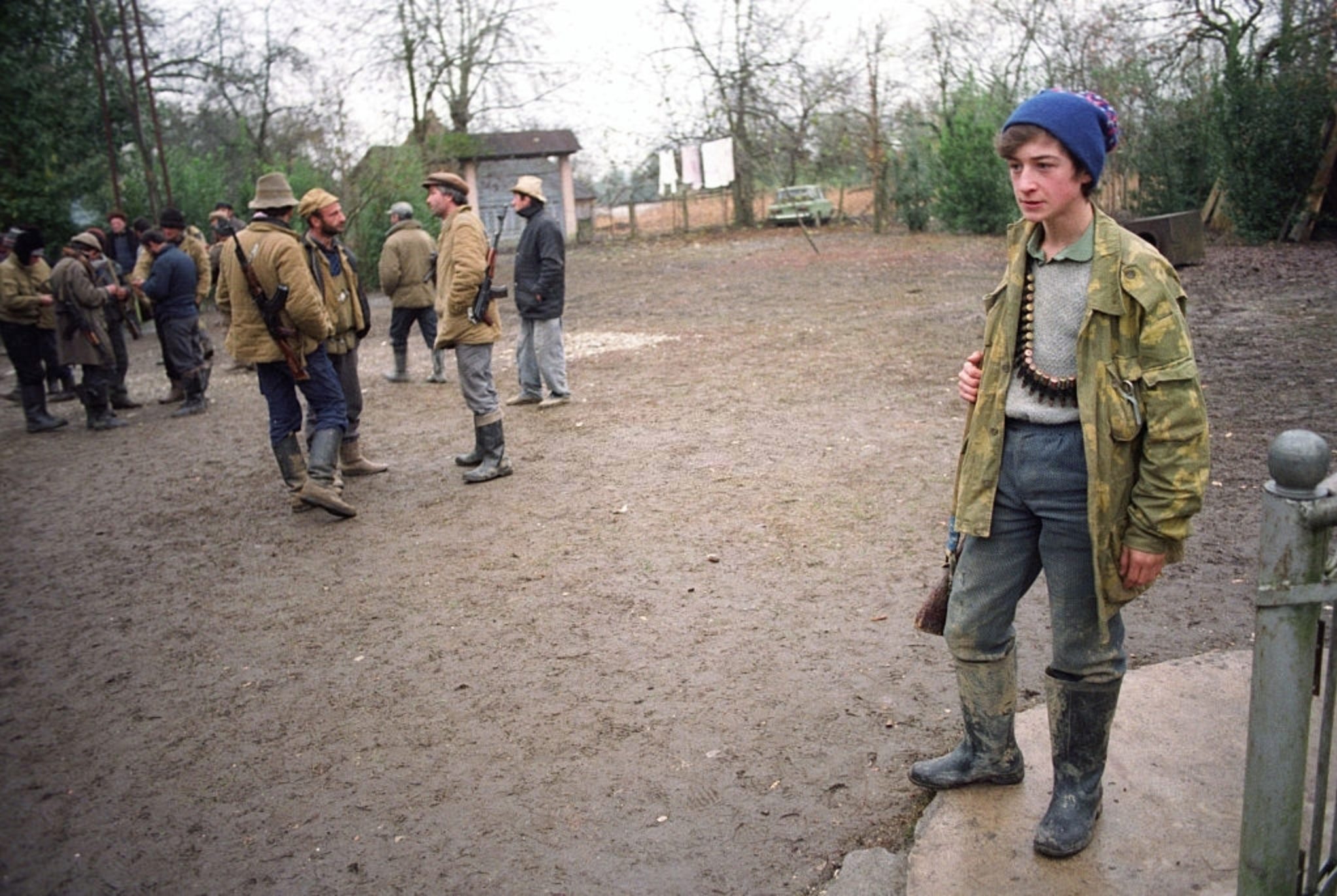
Abkhazian fighters block the road between Sukhum and Batumi. 19 December 1992. Despite the edict issued by then-President of the Republic of Abkhazia, Vladislav Ardzinba, prohibiting anyone under 18 from being sent to the front line, some determined teenagers voluntarily took up arms to defend their homeland.
He reminisced how, over time, the doctors and nurses began to place more trust in the boys, permitting them into the wards with the wounded and allowing them to aid those in need of additional care. Ruslan recounted being entrusted to hold a medical tray in the dressing room where the surgeon would discard fragments following surgery for blast injuries. Initially, adapting to all of this was quite a challenge for a teenager accustomed to a peaceful life.
Initially, many were eager to help, but as time went on, the initial enthusiasm of some boys and girls waned; many could not endure the intense atmosphere of the hospital and ceased coming after witnessing the grim realities of the round-the-clock military hospital regime. No blame lies with them; they were, after all, just children…
Ruslan Shakaya recounts a time when the hospital's reception room on the first floor was inundated with wounded from the Gumista front. Adjacent to them, on stretchers, lay the bodies of the deceased. Among the wounded soldiers was a young man covered in white cement-concrete dust, his gaze vacant, clutching an F-1 grenade in his hand—commonly referred to as "lemon." Someone shouted: "Grenade!" Panic ensued, many scrambling to exit the room. The soldiers escorting the wounded quickly assessed the situation, carefully disarmed the shell-shocked young man, and handed him over to the military doctors. The ramifications of a potential explosion in such a crowded setting could have been catastrophic. Thankfully, disaster was averted…
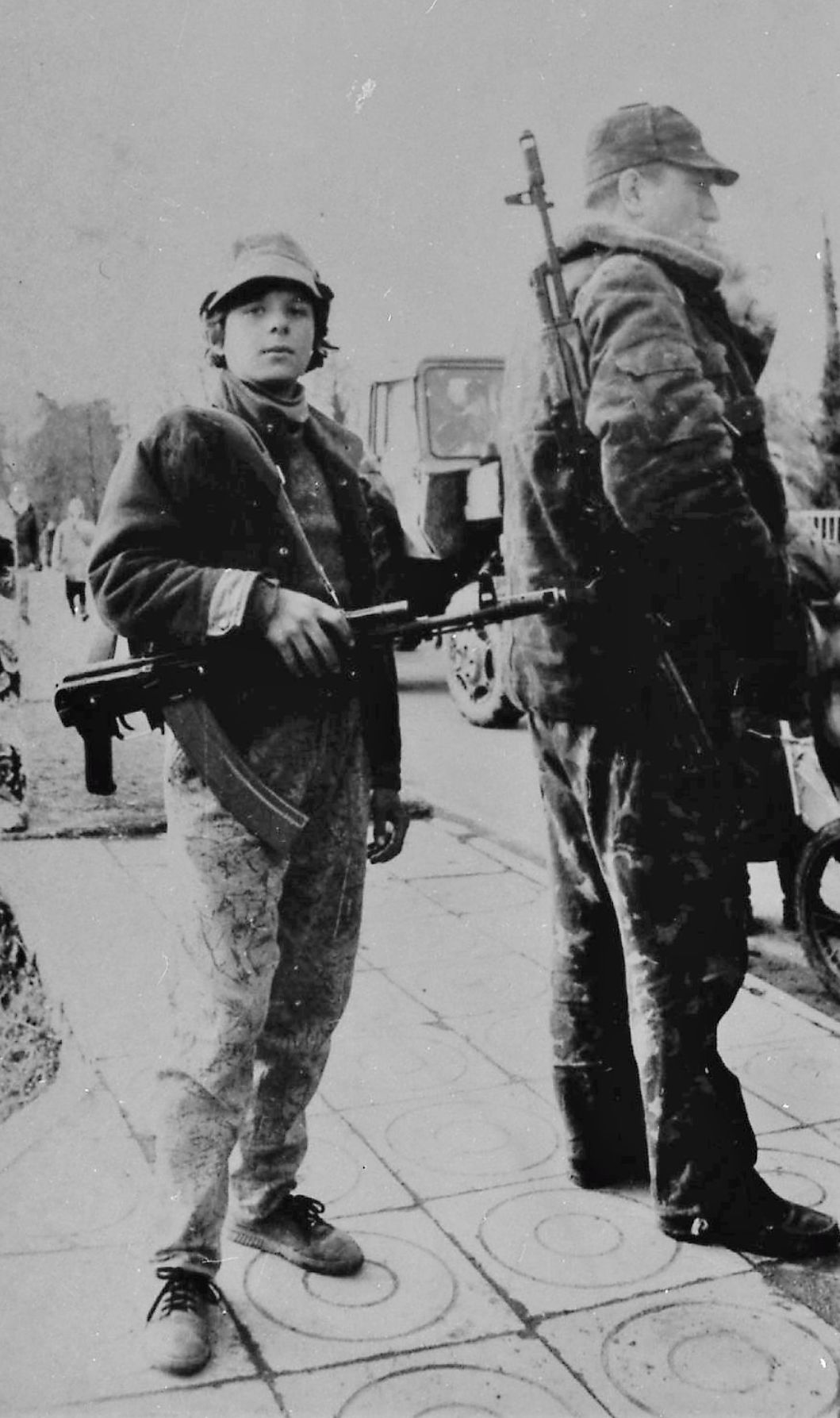
Vladimir Gigava. (1993)
There were instances when the boys were utterly exhausted, particularly on the days of front-line offensives. Ruslan recalled being so drained that he fell asleep on a bus, next to stretchers bearing the bodies of the deceased covered with blankets… It's challenging to fathom the level of stress experienced by teenagers who were witnesses to such scenarios.
Daur Kove, who worked alongside Ruslan Shakaya in the hospital, is currently the head of the Ministry of Culture of Abkhazia.
Back then, Lasha Lakrba was a ninth-grader, only 14 years old. Today, he serves in the law enforcement agencies. "We didn't do anything extraordinary; our elders did more," he modestly remarks.
Veronica (Nika) Dzhopua also shared a bit about her wartime childhood. Presently, she works in the consular department of the Ministry of Foreign Affairs of Abkhazia and is a mother to two wonderful children. During the Patriotic War of the people of Abkhazia, she was merely twelve years old. Despite her tender age, she, alongside her friends, frequented the Gudauta hospital to care for the wounded to the best of her child’s abilities.
The girls too played a part in unloading the wounded and made visits to the morgue…
Tending to the wounded is no easy feat, but the girls were determined to assist the nurses and doctors as much as they possibly could.
"Everything shifted in our worldview. Perhaps, my inclination to be at the hospital in those days was also linked to my brother's injury. The wards housed many men with various wounds, some older, and others of quite an advanced age… We did everything within our power," Veronica Dzhopua modestly recounted to the "Abkhazia-Inform" correspondent.
Reflecting on the war, Veronica remarked, "We were deprived of a childhood. We matured swiftly, and a certain unity emerged that aided us during the war and the subsequent phases of our lives."
Among the teenagers who contributed at the Military Hospital was Illarion Gartskiya. Sadly, he passed away in April 2023. His family cherishes the memories of his teenage years spent working at the Gudauta hospital alongside his classmates. Like his friends, he willingly volunteered, even though he was under 15. After a "probationary period," the hospital administration provided special white uniforms to the young volunteers and placed them on an allowance.
For a while, Illarion’s mother, Asida Lomiya, remained unaware that her son, upon leaving school, was assisting in the hospital. The revelation came when she noticed his grandmother laundering the special clothes. She preserved this uniform as a memento of her son's compassionate actions towards the wounded.
A concerned Asida approached the school director to understand the specifics of her son’s deeds, initially misconstruing it as a reluctance to attend classes. She also sought out the hospital’s head, Igor Tsyshba, who alleviate her concerns, explaining that numerous students were trying to help at the hospital, and such compassionate actions were a source of pride.
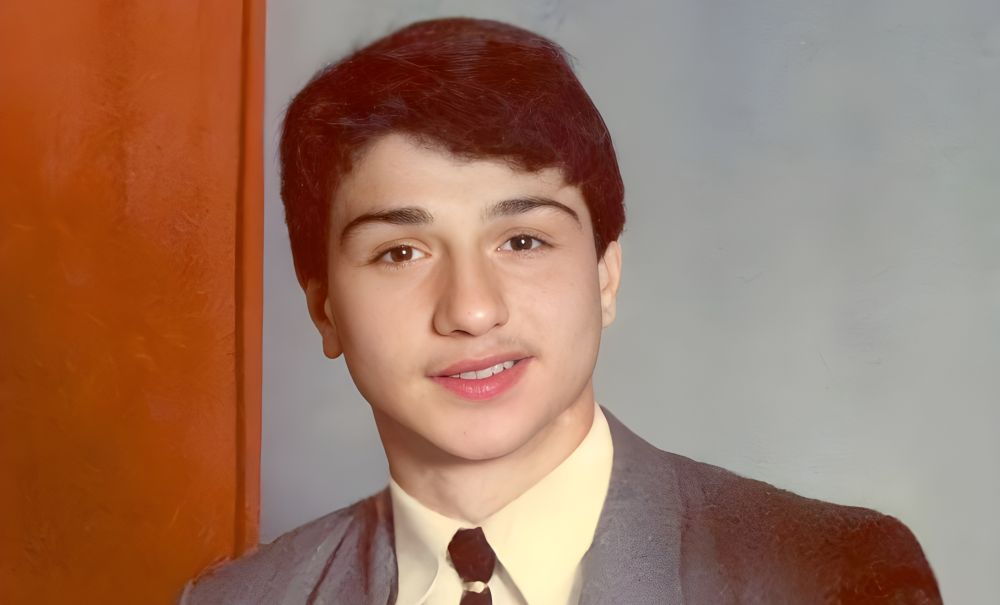
Valery Berkhamov (1977 - 1993) - Valery was only 16 years old when he left his native Kabardino-Balkaria for the war in Abkhazia.
Illarion kept his volunteer work a secret from his mother, confiding only in his grandmother, the Abkhazian poetess Nelly Tarba (1934-2014). Affectionately called Masyuta at home, he brought books to the hospital and read literary works that interested the wounded in the wards. He assisted patients in every way possible, transporting them, caring for the severely wounded, aiding the orderlies, and offering comforting conversation. A kind word, he understood, could be healing in itself. In essence, he strived to fulfil his volunteer duty to the best of his adolescent abilities.
Only someone who has experienced the hospital environment can truly comprehend the challenges of nursing a critically ill individual, particularly those with gunshot wounds or injuries from mine explosions, and so forth. At times, the hospital was so overwhelmed that there wasn’t anyone available to provide a simple glass of water. Nonetheless, the children persevered and supported the adults.
Years after the war, when Illarion became a father to two children, he shared glimpses of his wartime childhood with his mother. He recounted an incident where, while moving the body of a deceased to the morgue, a hand of the deceased fell to his side. The nurse accompanying them was overcome with emotion and stepped back in fear, tears streaming down her face. The boys, however, set the stretcher down, repositioned the soldier’s hand, and continued onward. Such composure was remarkable for ones so young…
Gartskiya served in the hospital from the end of March until September. He had to stop as he himself was hospitalised with acute appendicitis and underwent surgery in the same hospital, in the surgery department. The doctors and nurses affectionately teased the young patient, endearingly referring to him as their "colleague."
"If I had known what they had to witness... I believe it was a tremendous burden for a child’s psyche. However, these experiences did not harden my son. Witnessing and experiencing human grief and suffering in his childhood did not turn him into a malicious person. I am convinced that my son, along with his friends, was motivated by a sense of duty to the Motherland when they went to the hospital. And these boys and girls were reluctant to discuss their time at the hospital, hesitant to give interviews to journalists; they were modest…", reflects Asida Lomiya.
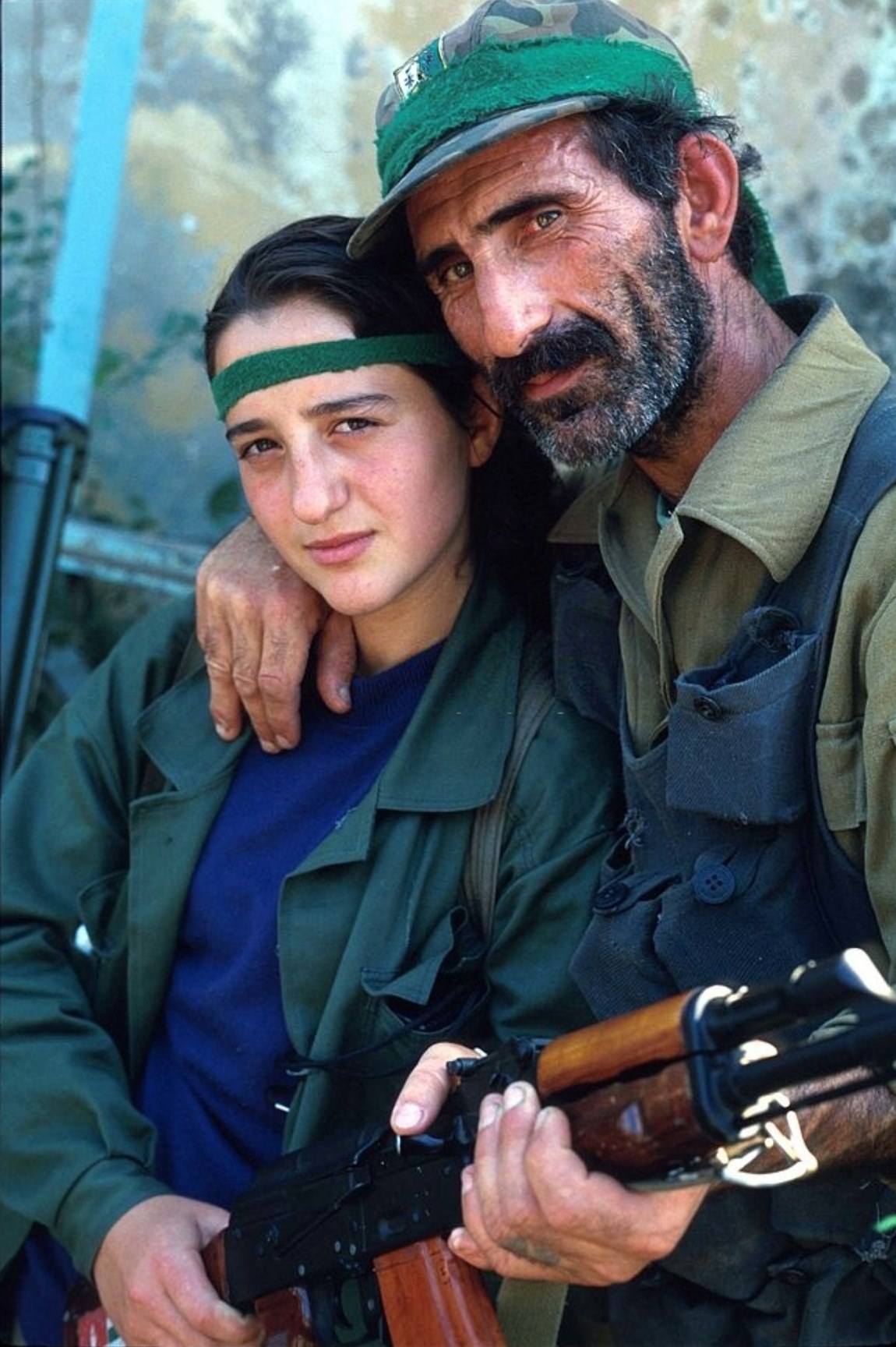
Back then, these young volunteers could hardly have realised that by aiding the wounded, they were supporting their small country, which was suffering and losing its sons at the frontlines; they were contributing to the forging of Victory.
Otar Osiya, who served as the Head of the Medical Service of the Ministry of Defence of Abkhazia and the acting Minister of Health of the Republic in 1992-1993, shared insights about the operation of the Medical Service Headquarters situated in the hospital. He distinctly remembers the day young Daur Kove walked into his office, leading a sizable group of about 20 teenagers. Daur expressed their collective desire to volunteer at the hospital, emphasising that in such tumultuous times, when all adults were at the front, they too yearned to make a difference.
"I remember being taken aback by such a courageous initiative from our children. The hospital environment is strenuous for adults to navigate, let alone for children with their delicate psyches. But the children were resolute, insistent on being assigned roles within the hospital," Otar Osiya reminisces.
After considering their earnest appeal, Osiya contacted the head of the hospital, Igor Tsyshba, assigning him the responsibility of allocating the young volunteers across various departments where they could assist nurses and caretakers. The boys were organised into groups, each under the guidance of a senior mentor.
"To be frank, had I known beforehand that a request for assistance had been sent to the school, I would have opposed involving the children. I would have strictly prohibited their admission to the hospital, given the considerable physical and psychological strain involved. However, I am heartened to see that our erstwhile young aides have grown into commendable individuals, pursued education, established families, and emerged as valuable members of society," Otar Osiya emphasised.
This article was published by Abkhazia-Inform and is translated from Russian.